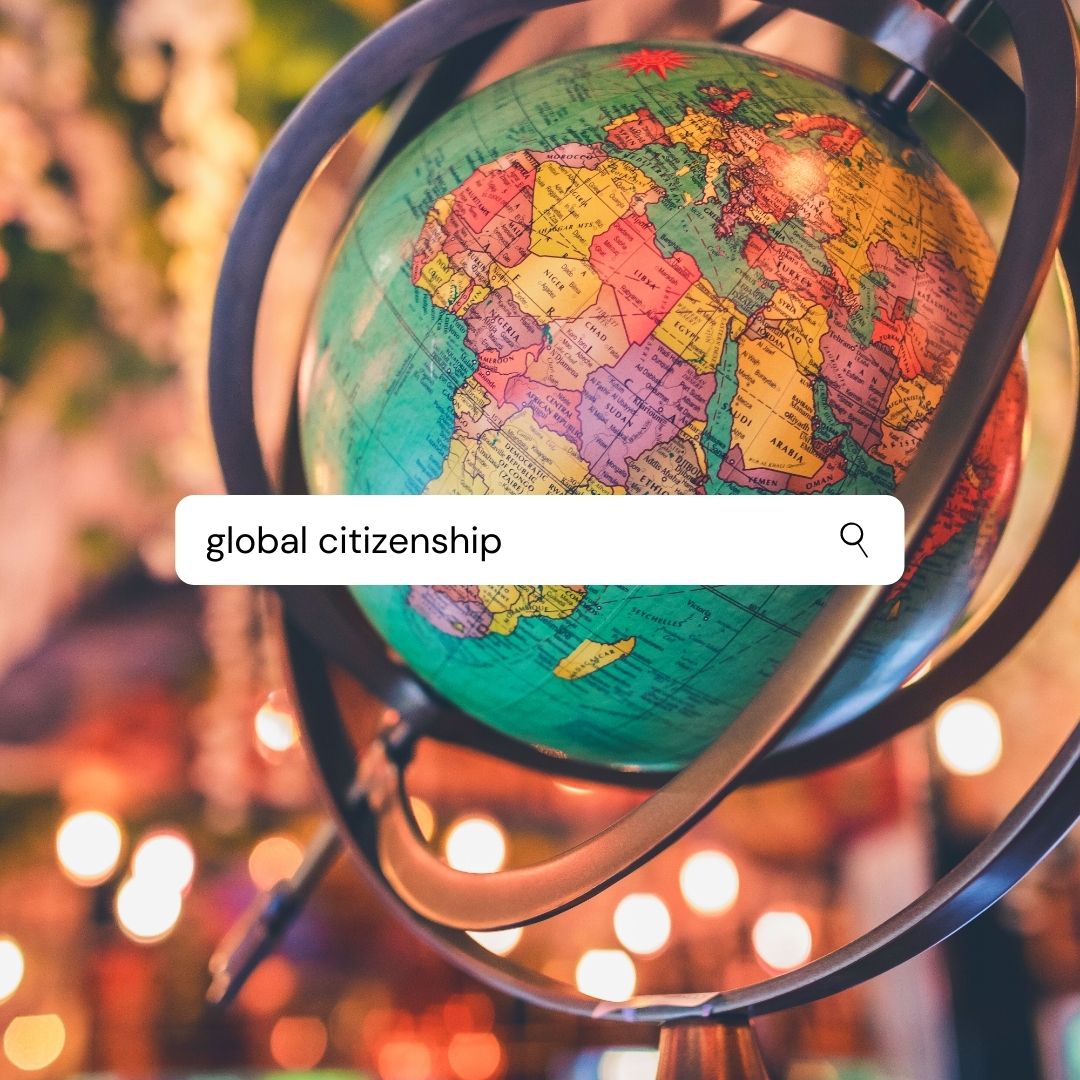Are you a Global Citizen? What it means to be one.
July 2, 2021
The idea of a global citizen may conjure up images of an elite world traveler with multiple passports and even, residences and businesses.
Rather than being about the length of one’s list of international travel, the term “global citizenship” refers to one’s identity and values.
All citizens of this planet are eligible to be global citizens, even if they have never left their corner of the world.
So, are you a global citizen?
Here are two definitions to consider:
- Global citizenship is the idea that one’s identity transcends geography or political borders and that responsibilities or rights are derived from membership in a broader class: “humanity”. This does not mean that such a person denounces or waives their nationality or other, more local identities, but that such identities are given “second place” to their membership in a global community. Extended, the idea leads to questions about the state of global society in the age of globalization. (Wikipedia, accessed 2021)
- A global citizen is someone who is aware of and understands the wider world – and their place in it. They take an active role in their community and work with others to make our planet more peaceful, sustainable and fairer. (OxFam UK, accessed 2021)
As COVID-19 has made evident, we are increasingly connected as the world globalizes.
Global citizenship is about developing knowledge, skills, and values that make the world a better place. This is not a new concept in education. Global citizenship is for everyone: young people, locals, and cosmopolitan travelers alike.
For me, global citizenship is about being conscious of the way we move through the world and recognizing our impact. I believe global citizens are local and worldly everyday heroes.
Global citizens are the humanitarian workers who will leave their loved ones and countries to feed, advocate for, and care for humans on the other side of the world at risk to themselves.
Global citizens are the travelers and expats who serve as informal ambassadors, storytellers, and connecters between regions and cultures .
Global citizens are the people who tear down the barriers marginalizing the vulnerable in their own communities and neighborhoods. They speak up in the face of injustice. They defend against racism, sexism, ableism, violence and oppression.
Global citizens are the people who simply love and express kindness to fellow human beings. They love thy neighbor and are inclusive models for all.
Global citizens raise children, educate students, and encourage others in their lives to strive towards cooperation, peace, and sustainability for our world for all.
Global citizenship is for all of us. We need them…and we can be them.
If Beyoncé’s performance at the UN’s World Humanitarian Day doesn’t leave you awe-struck by immensity of human pain and suffering + our power to overcome, you might need to see it for yourself.
Our world is facing lots of problems and it’s not “someone else’s problem.” It’s not something the environmentalists or the activists or the scientists can solve for us. It’s easy to get overwhelmed when the scale is daunting.
We can’t do any of this as individuals.
We need to face the realities of the world we are living in. The consequences of inaction are too great. We need to overcome psychological avoidance and approach reality. This takes internal work and addressing limiting beliefs about your ability to make a difference. It also takes self-care and mental wellness to not be consumed by burnout and grief.
So, the appropriate question might not be: Are you a global citizen?
Perhaps you realize the term applies more to you than the image of the elite world traveler. Most of us do have a sense for our interconnectedness and common humanity–even if it is fleeting.
A more interesting question might be: How can you grow in your global citizenship?
You don’t have to save the world. You can’t. It’s not even about you.
It’s about the power of human beings–all over the world–committed to making the world a better place through shared values and diverse efforts. Everyone has unique gifts, talents, and abilities to contribute to this global, but locally felt, mission.
For inspiration, check out the DIY Conference for Global Citizens. I’ve handpicked TED Talks on how we can get creative and incorporate this work into our everyday lives, as well as, starting large scale projects.
May you transcend the limits of political borders and find purpose in your contribution to the world.
